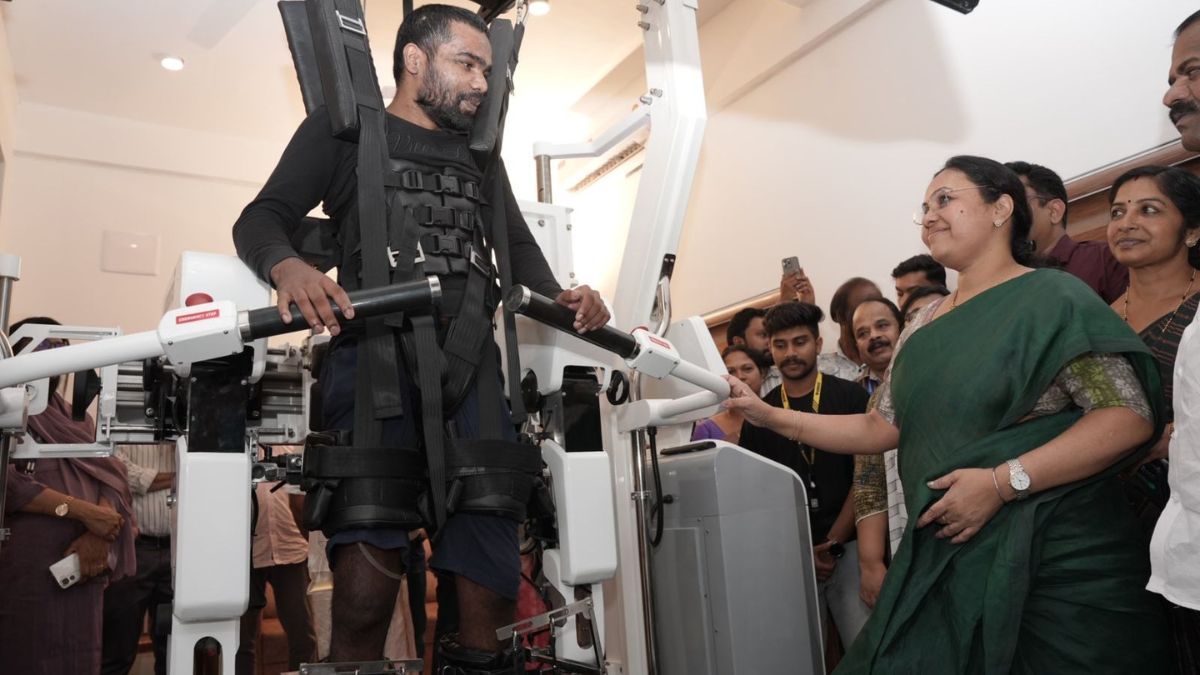Kerala's robotic leap in public health: How AI-powered 'G-Gaiter' is transforming rehabilitation

Kerala has marked a significant milestone in public health, becoming the first state in India to integrate robotic rehabilitation technology at the primary healthcare level.
This achievement was realised with the installation of the state-of-the-art Robotic Assisted Gait Trainer, or ‘G-Gaiter’, at the Noolpuzha Family Health Center (FHC) in the Wayanad district. The facility was officially inaugurated by the state minister for health, Veena George.
ALSO READ | From Manikins to VR: Inside the world of advanced medical simulators
This transformative project is being implemented as part of the Chief Minister’s Wayanad Special Rehabilitation Package. Given that over 50 per cent of the population in the Noolpuzha Panchayat belongs to tribal communities, the introduction of this advanced medical facility exemplifies social justice and inclusive healthcare. Specialised rehabilitation services, which were previously limited for this community, will now be accessible locally.
"The Noolpuzha Family Health Center (FHC) is located in a very backward region. For the people here, approximately 50 per cent of whom belong to the tribal community and the rest to the most marginalised sections of the general public, we are proud to have made available state-of-the-art robotic rehabilitation facilities, including the G-Gaiter,” said Dr Dahar Mohammed V.P., Medical Officer, Noolpuzha FHC.
Developed by Genrobotics Innovations, a Kerala-based startup that has garnered global attention, the 'G-Gaiter' is an advanced robotic gait therapy system used for the physical rehabilitation of patients with mobility issues to help them regain their ability to walk.
This innovative gait trainer is suitable for both children and adults and is set to revolutionise rehabilitation for patients recovering from gait-related disabilities, such as stroke, spinal cord injury, and cerebral palsy.
By providing robotic assistance, the system ensures substantial improvements in natural walking style, balance, coordination, and functional recovery.
The equipment uses artificial intelligence to mimic natural human gait patterns, ensuring precise and consistent movements that promote neuroplasticity for effective rehabilitation. This was found to improve mobility, stability, and the quality of walking training steps.
While talking to THE WEEK earlier, Vimal Govind M.K., the co-founder and CEO of Genrobotics, had said that manual therapy cannot fully replicate normal gait.
“With the G-Gaiter, we control all limbs efficiently, providing a natural walking pattern. This repetition allows the brain to relearn the correct pattern,” he said.
This technology has already been in use for over a year at the Physical Medicine and Rehabilitation (PMR) department of the Thiruvananthapuram General Hospital.
Dr Arun John, PMR Consultant at the General Hospital, Thiruvananthapuram, stated:
“In a prospective crossover study involving 36 stroke patients, significant progress was found in balance and gait function. To date, over 80 patients have benefited from this system.”
Health